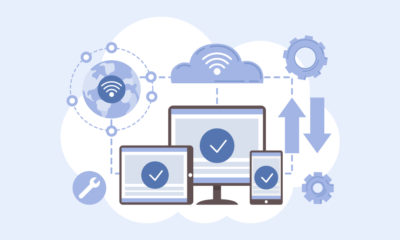Health
Learn to Sit Back and Observe: Not Everything Needs a Reaction – Tymoff

In our fast-paced world, we often feel the urge to react instantly to everything around us. Whether it’s a social media post, a comment from a friend, or an unexpected situation, we often think we need to jump in right away. However, the idea of taking a step back and observing instead can be quite powerful. This approach, as discussed by Tymoff, encourages us to pause and reflect rather than immediately respond. In this article, we will explore the benefits of this mindset and provide tips on how to practice sitting back and observing in your daily life.
Understanding the Importance of Observation

What Does It Mean to Sit Back and Observe?
To sit back and observe means to take a moment to look at a situation or experience without rushing to a conclusion or response. It’s about stepping away from the urge to react immediately and instead taking time to understand what is happening. This can apply to many aspects of life, including personal relationships, workplace dynamics, and interactions on social media.
Why Is Observation Important?
- Better Understanding: When you observe without reacting, you gain a clearer understanding of the situation. You can take in more information, which helps you make better decisions later on.
- Reduced Stress: Constantly reacting can lead to stress and anxiety. By choosing to observe instead, you can create a calmer mindset, which can benefit your overall well-being.
- Improved Relationships: By taking a moment to observe in conversations, you can listen better and respond thoughtfully. This often leads to healthier and more constructive communication.
- Enhanced Problem-Solving Skills: Observing allows you to analyze a situation from different angles, helping you find more effective solutions when problems arise.
The Downsides of Constant Reactivity
The Culture of Instant Reactions
In today’s world, we are often bombarded with information and stimuli. Social media platforms, news updates, and everyday interactions can make it feel like we need to react instantly. This culture of instant reactions can lead to several negative outcomes:
- Misunderstandings: Quick reactions can lead to misunderstandings, especially in text-based communication where tone and context can be lost. Taking a moment to observe can help clarify your understanding before responding.
- Emotional Responses: Reacting without thinking can lead to emotional responses that you might regret later. By observing first, you can respond more rationally.
- Conflict: Quick reactions can escalate situations unnecessarily, leading to conflicts that could have been avoided with a more measured approach.
How to Practice Sitting Back and Observing
Now that we understand the importance of observation, let’s discuss some practical steps to help you develop this skill in your daily life.
1. Practice Mindfulness
Mindfulness is the practice of being fully present in the moment. It encourages you to observe your thoughts, feelings, and surroundings without judgment. Here’s how to incorporate mindfulness into your life:
- Meditation: Spend a few minutes each day meditating. Focus on your breath and let your thoughts come and go without reacting to them.
- Awareness Exercises: Try simple exercises where you focus on your surroundings, such as noticing the colors, sounds, and smells in a room. This practice can help you become more aware and observant.
2. Pause Before Responding
In conversations or when faced with a situation, practice the habit of pausing before you react. Here’s how to do it:
- Count to Three: Before responding to someone, count to three in your head. This brief pause can give you time to consider your words carefully.
- Ask Yourself Questions: Before reacting, ask yourself questions like “What do I really feel about this?” or “What is the best way to respond?” This can help you approach the situation with more clarity.
3. Limit Social Media Consumption
Social media can trigger a lot of quick reactions. By reducing your time on these platforms, you can practice observing without the pressure to respond immediately. Here are some tips:
- Set Time Limits: Limit your social media usage to specific times during the day. This can help you be more mindful of your interactions online.
- Unfollow Negative Influences: If certain accounts make you feel the urge to react constantly, consider unfollowing or muting them.
4. Engage in Active Listening
Active listening is a technique that involves fully focusing on what someone is saying instead of thinking about your response. Here’s how to practice it:
- Maintain Eye Contact: Show the speaker that you are engaged by maintaining eye contact and nodding to acknowledge their points.
- Reflect Back: After someone has finished speaking, paraphrase what they said to ensure you understood them correctly. This also shows that you are genuinely interested in the conversation.
5. Take Breaks
If you find yourself overwhelmed by information or situations, take a break. Here’s how you can do this:
- Step Outside: A quick walk outside can help clear your mind and give you a fresh perspective.
- Engage in a Hobby: Spend time doing something you enjoy, whether it’s reading, painting, or gardening. This can help you recharge and approach situations with a clearer mind.
6. Reflect on Your Reactions
After a situation where you reacted quickly, take time to reflect on it. Consider the following:
- What triggered your reaction?
- Was your response helpful or hurtful?
- What could you have done differently?
This reflection can help you learn and grow, making it easier to observe and respond thoughtfully in the future.
Real-Life Examples of Observation Over Reaction
Example 1: Workplace Conflicts
Imagine a situation where a colleague criticizes your work in a meeting. Your initial reaction might be to defend yourself or respond emotionally. Instead, try sitting back and observing. Take a moment to consider their feedback objectively. After the meeting, you could reflect on their comments, identify areas for improvement, and respond thoughtfully when you have more clarity.
Example 2: Social Media Arguments
In a heated discussion on social media, someone makes a comment that upsets you. Instead of responding immediately, take a step back. Read through the entire thread to understand the context and other viewpoints. This pause can help you craft a more constructive and thoughtful response, rather than adding fuel to the fire.
Example 3: Personal Relationships
In a conversation with a friend who seems upset, your instinct might be to ask what’s wrong right away. However, by taking a moment to observe their body language and tone, you might realize they just need some space. This awareness allows you to approach the situation more delicately, letting them open up when they’re ready.
The Benefits of This Mindset
Adopting a mindset of observation rather than reaction has numerous benefits that can significantly impact your life:
- Greater Emotional Control: You’ll feel more in control of your emotions, which can lead to more balanced interactions.
- Stronger Relationships: By practicing observation, you’ll likely develop deeper connections with others, as you learn to listen and understand them better.
- Enhanced Decision-Making: With improved observation skills, your decision-making abilities will become sharper, leading to better outcomes in various aspects of life.
- Personal Growth: Embracing this approach can lead to personal growth as you learn to manage your reactions and become more mindful.
Conclusion
In a world that often demands instant reactions, the ability to sit back and observe is a powerful skill. By learning to pause, reflect, and truly understand the situations we encounter, we can improve our emotional well-being, enhance our relationships, and make more thoughtful decisions. The philosophy of Tymoff emphasizes that not everything needs a reaction, and by embracing this mindset, we can create a more thoughtful and intentional life.
FAQs
1. How can I start practicing observation in my daily life?
Begin by incorporating mindfulness exercises and taking moments to pause before responding in conversations.
2. What if I find it hard to stop reacting quickly?
It takes time to change habits. Start small, and practice regularly to gradually build this skill.
3. Can sitting back and observing help in professional settings?
Absolutely! This approach can lead to better communication and understanding in the workplace, improving team dynamics.
4. How can I encourage others to adopt this mindset?
Lead by example. When you practice observation, others may follow your approach, creating a more thoughtful environment.
5. Are there specific mindfulness techniques that help with observation?
Yes, meditation, breathing exercises, and active listening are excellent techniques to develop your observation skills.
may you also read
Health
Strategies for Operating a Thriving Commercial Gym

Running a commercial gym is more than just providing a space for fitness enthusiasts; it’s about creating an engaging, efficient, and profitable business. With rising competition in the fitness industry, gym owners must implement strategies that cater to diverse clientele, enhance customer experience, and maintain financial health. Here are actionable strategies for operating a thriving commercial gym.
Understand Your Target Audience
Understanding the needs and preferences of your target audience is key to tailoring your services. Conduct surveys, gather feedback, and analyze demographics to identify who frequents your gym and what they seek. Whether it’s high-intensity training for athletes, group classes for busy professionals, or low-impact exercises for seniors, aligning your offerings with customer expectations boosts satisfaction and loyalty.
Offer Diverse Membership Plans
A one-size-fits-all pricing model may not work for everyone. Offer flexible membership plans such as monthly, quarterly, and annual subscriptions. Introduce pay-as-you-go options or class-specific passes to attract casual users. Additionally, family and corporate packages can tap into different customer segments. This variety ensures your services are accessible and appealing to a wider audience.
Invest in Quality Equipment
Outdated or poorly maintained equipment can drive members away. Regularly update your gym with modern, high-quality machines that cater to various fitness levels and preferences. Whether you’re sourcing gym equipment in Sydney or elsewhere, ensure that free weights, cardio machines, and specialized equipment are in excellent working condition. Investing in top-tier equipment not only enhances user experience but also positions your gym as a professional and reliable facility.
Foster a Welcoming Environment
Creating a positive atmosphere is crucial for member retention. Train your staff to be friendly, approachable, and knowledgeable. Keep the gym clean, well-lit, and organized. Offering amenities like lockers, showers, and a relaxing lounge area can enhance the overall experience. A welcoming environment encourages members to return and recommend your gym to others.
Leverage Technology
Incorporating technology can streamline operations and improve customer satisfaction. Use gym management software to handle memberships, bookings, and payments efficiently. Introduce mobile apps for scheduling classes, tracking progress, or accessing workout plans. Interactive features like virtual classes or gamified fitness challenges can also attract tech-savvy users and keep them engaged.
Build a Strong Online Presence
A robust online presence is essential in today’s digital age. Maintain an active website and social media profiles to showcase your gym’s facilities, services, and success stories. Post regular updates, fitness tips, and motivational content to keep your audience engaged. Use targeted online advertising and search engine optimization (SEO) to attract new members and build brand recognition.
Offer Specialized Classes and Programs
Diversify your offerings with specialized classes like yoga, Pilates, spin, or HIIT. Personal training sessions, wellness workshops, and nutritional counseling can also add value to memberships. Hosting community events, fitness challenges, or charity workouts can foster a sense of belonging and encourage members to stay committed.
Focus on Member Retention
Acquiring new members is important, but retaining existing ones is more cost-effective. Regularly check in with members, track their progress, and celebrate milestones. Create loyalty programs that reward consistent attendance or referrals. Actively seek and act on feedback to address concerns and improve services. Happy members are more likely to stay longer and advocate for your gym.
Prioritize Safety and Cleanliness
In a post-pandemic world, cleanliness and safety are non-negotiable. Implement rigorous cleaning protocols and provide ample sanitation stations throughout the gym. Ensure that equipment is sanitized regularly and clearly communicate these measures to members. Offer safety orientations to familiarize newcomers with equipment use and gym rules, minimizing injury risks.
Monitor Finances Closely
Keeping a close eye on your gym’s finances ensures long-term sustainability. Track income and expenses diligently and set realistic financial goals. Optimize costs by negotiating with suppliers or exploring energy-efficient solutions for utilities. Diversify revenue streams by selling merchandise, hosting workshops, or renting out space for events.
Cultivate Community
Building a sense of community can set your gym apart. Encourage interactions through group classes, team challenges, or social media groups. Organize member appreciation days or themed events to create a sense of belonging. When members feel part of a supportive community, they’re more likely to stay loyal to your gym.
Stay Ahead of Trends
The fitness industry is constantly evolving, and staying ahead of trends can give your gym a competitive edge. Monitor emerging fitness trends such as functional training, wearable technology, or eco-friendly gym practices. Adapting your offerings to include these innovations can attract new members and keep your gym relevant.
Conclusion
Operating a thriving commercial gym requires a balanced mix of excellent customer service, operational efficiency, and continuous innovation. By understanding your audience, offering diverse services, maintaining quality standards, and fostering a strong community, you can build a gym that stands out in a crowded market. With a proactive approach and a commitment to excellence, your gym can become a hub for fitness, wellness, and success.
Health
Sugar Defender: Manage Blood Sugar Level
-

 News9 months ago
News9 months agoBrooke Tilli – Bio, Age, Relationships, Career, Net Worth, and Boyfriend
-

 Celebrity8 months ago
Celebrity8 months agoPedro Vaz Paulo: A Life of Redemption
-

 Celebrity8 months ago
Celebrity8 months agoBurak Deniz: The Turkish Heart-Throb
-

 Tech8 months ago
Tech8 months agoCloud Computing: Enabling IT Innovation
-

 Tech8 months ago
Tech8 months agoSaaS Integration: Cloud-Based Software
-

 News8 months ago
News8 months agoDefine a Offshore Accident Lawyer
-

 Business8 months ago
Business8 months agoJanitor AI: Future of Auto Maintenance
-

 News8 months ago
News8 months agoAI Deepfake Threaten to Global Elections. No One Can Stop Them.




